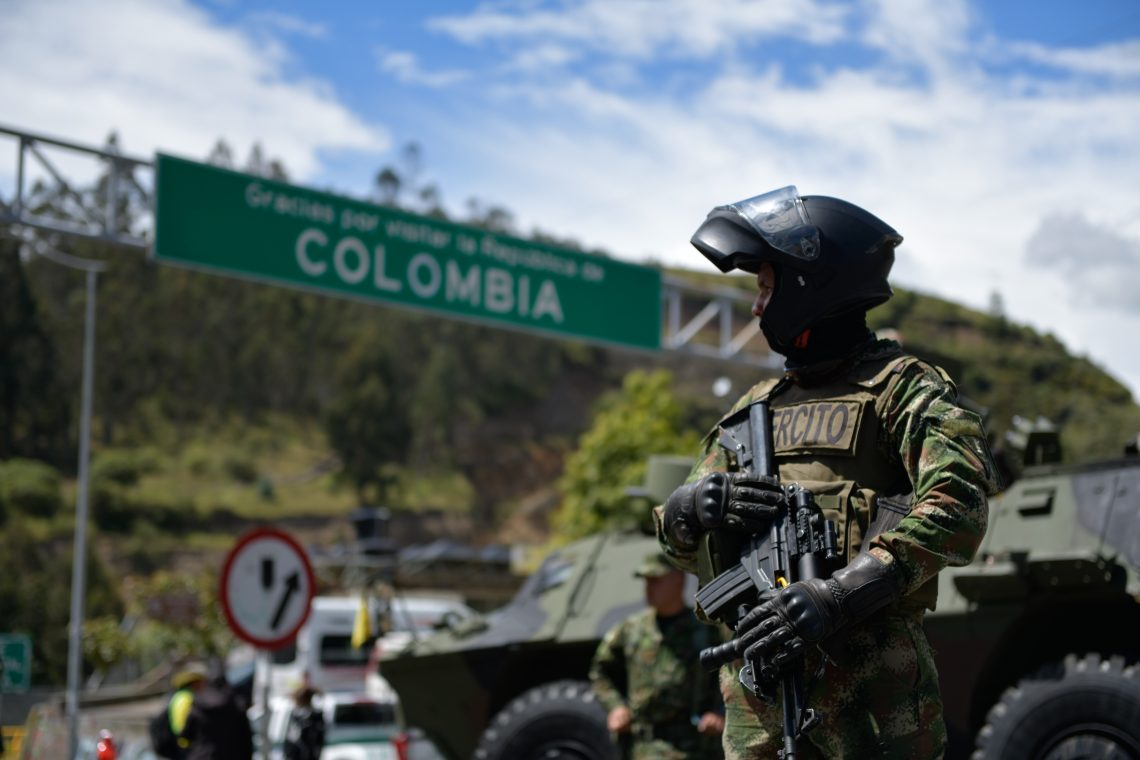Transnational Crime in Latin America: A Growing Challenge for Democracies
Transnational crime in Latin America is on the rise, presenting complex challenges for security and governance. While regions like Mexico and Colombia have long been at the forefront, criminal networks are increasingly penetrating countries such as Ecuador, Peru, and Chile, reshaping the landscape of organized crime. These developments not only threaten public safety but also undermine democratic institutions and state legitimacy.
The Evolving Security Landscape
In recent years, Latin America’s organized crime scene has evolved into transnational syndicates that operate seamlessly across borders. Driven by global demand for illicit drugs, these networks have expanded into countries previously considered peripheral to the drug trade. For example, Ecuador has emerged as a crucial transit hub for cocaine, with gangs like Los Choneros and Los Lobos vying for power and forming alliances with powerful Mexican cartels.
Countries such as Peru, Bolivia, and Paraguay are also seeing increased activity in narco-trafficking and arms smuggling, fueled by weak border enforcement and a growing appetite for coca base. Even traditionally insulated nations like Argentina and Chile now grapple with the ramifications of rising violence and the infiltration of foreign criminal groups.
This alarming trend extends beyond physical geography; it also encompasses institutional corruption. Criminal organizations often penetrate municipal governments, police forces, and judicial systems, complicating efforts to combat them. The phenomenon of "hybrid governance" illustrates the entangled nature of legal and illegal authority in places like Mexico, Ecuador, and Venezuela, compromising democracy itself.
The Mano Dura Approach
In response to escalating violence, many Latin American leaders have adopted mano dura or "iron fist" strategies involving militarized responses. These policies focus on repression and mass incarceration and are particularly popular in countries like El Salvador and Honduras, where public discontent about crime runs high.
El Salvador’s President Nayib Bukele has garnered attention for his aggressive crackdown on gang violence, which includes indefinite states of emergency and extensive surveillance. His policies have led to short-term reductions in homicide rates, resonating with citizens desperate for security.
While such strategies are popular, they raise questions about long-term sustainability. Evidence suggests that mano dura policies may have limited effects on overall crime rates and can exacerbate human rights abuses. Notably, in Ecuador, these measures coincided with a rise in forced disappearances amid ongoing conflict with criminal groups, demonstrating the potential human cost of aggressive tactics.
Rising Violence and Public Sentiment
As violence escalates, public opinion increasingly aligns with those advocating for harsh measures. Citizens often prioritize immediate safety over civil liberties, leading to widespread electoral support for leaders promising security through militarized means. The public’s desire for order is palpable, creating a cycle where authoritarian measures are favored to address urgent concerns, often at the expense of democratic values.
This environment effectively indoctrinates populations into viewing militarized responses as necessary, leaving little room for alternative approaches to crime and safety. The political implications for the region are significant, as fear and frustration can shift democratic preferences, making it easier for leaders to justify expanded state control.
The Role of Institutions in Combating Crime
Despite the popular appeal of mano dura, an effective long-term solution to organized crime requires robust institutions capable of independent law enforcement. Countries where independent prosecutors and judges hold the power to pursue both gang members and corrupt officials show more promise in battling organized crime. For example, Guatemala’s International Commission Against Impunity had notable successes in the past by collaborating with independent legal entities to dismantle networks of corruption tied to narco-traffickers.
Additionally, countries like Argentina have seen success in prosecuting corrupt officials linked to organized crime, indicating that legal reforms and strong judicial frameworks can lead to real progress. The case of Ecuador’s Attorney General Diana Salazar highlights the importance of courageous leadership in rooting out corrupt ties within government institutions.
Regional Cooperation: A Necessary Effort
The nature of organized crime is inherently transnational, underscoring the need for coordinated efforts among Latin American countries. Initiatives aimed at sharing information and building cross-border task forces are crucial. The Alliance for Security, Justice and Development, launched in December 2024, showcases a regional commitment by 18 countries to combat organized crime through collaboration.
This alliance aims to protect vulnerable populations, strengthen institutions, and diminish the illicit markets that fuel crime. Enhanced cooperation becomes essential, especially as national police forces often struggle against sophisticated criminal organizations with international connections.
Alternatives to Militarization
While militarization remains attractive, several leaders propose more sustainable strategies to dismantle the systems supporting organized crime. Intelligence-led policing could offer a more nuanced approach, focusing on strategically targeting criminal networks without resorting to mass arrests or violation of rights.
Community-based programs that engage at-risk populations can also be effective. Cities like Medellín have seen success in integrating social investment with law enforcement activities, demonstrating that building trust within communities can yield dividends in the long term.
The Future of Security and Governance in Latin America
Latin America stands at a crossroads. The rise of transnational crime poses ongoing threats, with outcomes dependent on the choices made by governments. While mano dura may offer the illusion of immediate relief from violence, it is imperative that leaders also commit to building strong institutions capable of resisting corrupt influences.
The effectiveness of any approach will hinge on the willingness of governments to move beyond short-term solutions and invest in durable, evidence-based strategies. The complexity of these challenges requires not just strong leadership but also a societal commitment to uphold democratic values while addressing the tangible threat of organized crime.


